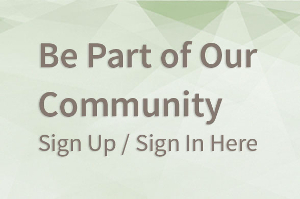BK Blog Post
3 Tips for Answering Honestly About Your Post-Grad Plans
 Posted by
Shabnam Banerjee-McFarland,
Sales and Marketing Strategist,
Berrett-Koehler Publishers, Inc. .
Posted by
Shabnam Banerjee-McFarland,
Sales and Marketing Strategist,
Berrett-Koehler Publishers, Inc. .
Shabnam is the Sales & Marketing Strategist at BK and coordinates launch campaigns for a few books per season. She is a San Francisco native born & raised, forever wandering the earth like a unicorn.
The looming question of “what’s next?” for all recent post-grads hangs over our heads like a storm cloud, striking sadness and anxiety, like lighting, rather than inspiration and motivation. More often than not, we commit ourselves to a romanticized version of success that is formatted so that success is achievable by anyone. Especially after graduation, we are encouraged to follow our dreams, as long as our dreams have tangible monetary gains that adhere to societal standards of success.
Well, that seems incredibly hollow, doesn’t it?
I’ve found, having just recently graduated from undergrad, that I’m chasing a pipe dream in trying to combine authentic happiness with prescribed pathways towards success. I can’t tell you the number of times I’ve been asked, “What are your plans?” or, “what have you been doing with yourself?” This implies that between my unpreparedness for the real world (seriously, I still don’t fully understand how taxes work), lack of maturity, and the daily grind of finishing college on time and debt-free, I’ve had time to plan my future for the next 40 years. Upon exiting college, I’ve entered the Promised Land, right?
We forget that locating happiness opens doors to success in ways that we didn’t even know existed. These tips aren’t going to hand you the application to your dream job, but hopefully expand the definition of what success and happiness really mean.
1. Don’t measure your understanding of success to what’s already out there. The linear trajectory of success is played out. After finishing college, I had a job in a viable industry that paid a living wage with good benefits. I’d been made promises for upward mobility within the company and was ready to take on the retail biz by storm. The one thing I didn’t count on, though, is my extreme unhappiness. This job, while I learned so much and am thankful for the opportunity, didn’t provide happiness as equated to success as I thought it would. That’s because happiness is an adventure, not a destination, elusive as it may seem.
BK authors David Shapiro and Richard Leider said it best in their book Repacking Your Bags, “Everywhere we look, we see people pursuing happiness, as if it’s something they could capture and cage. But pinning happiness down only destroys it. It’s too wild for that – it needs to roam. You have to give it time, let it wander, let it surprise you. You have to discover what it means to you authentically, rather than trying to adopt a version of it from someone else.”
2. It’s OKAY to take a different direction than what you’ve been classically trained to do. The notion that college is meant to vocationally condition us for a job that’s out there clouds the idea that we can adapt our learned skills to different situations. Critical thinking and rational self-promotion are always going to be valuable skills. Instead of zeroing in on our college major or past work, we can shift our attention towards what we’ve learned about our strengths and the efficacy of these strengths. It is almost too easy to become preoccupied with the content of our knowledge, rather than the process of learning. This preoccupation with what we know rather than how we learned it can feel like quicksand and paralyze us in a job or industry that we’re too afraid to leave because we don’t know anything else.
Changing our questions to better answer abstract questions like “how do I learn?” means framing our desired outcomes positively, so we don’t limit ourselves to what we think we know. Marilee Adams advances these questions as personal explorations in her book Change Your Questions, Change Your Life. We tend to concentrate on the negative aspects of our day, asking ourselves “what could go wrong today?” To veer away from this negative energy, like focusing on concrete facts, we can ask ourselves “how can I combine what I’ve learned with how I learn, and apply it to this new situation?” Combing our minds for positivity instead of limitations shines new light on possibilities and career paths.
3. Maybe, Your Life Isn’t For You. Seth Adam Smith’s popular blog-post-turned-book, Your Life Isn’t For You, showcases how broadening our definition of what it means to be truly selfless is telling in how we can combine success and happiness after graduating. Although the American Dream advocates for self-sufficiency and hyper-individualism, Smith poses an interesting interpretation to what selflessness actually results in. “True selflessness is perhaps one of the most paradoxical things in nature: You don’t lose yourself in being selfless – you find yourself.” While it’s been hammered into us that we need to achieve markers of success for ourselves, for our future partner and for our subsequent children, the answers for our mysterious enlightenment and fulfillment could be hiding in helping others.
So, this may not solve lingering problems of what job opportunities are presently available, but these books revolutionize our approaches to being successful. It’s about answering authentically, and situating our happiness as central and success as a result, and not the other way around.





